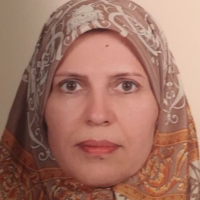Number of Blood Product Transfusions in Premature Infants in Hazrat Rasoul Hospital: Limitations and Problems
Author(s):
Abstract:
Background and Aim
Hospitalized neonates are among the groups who are prone to recurrent blood transfusions. Due to neonates’ immune defects and common transfusion problems, blood transfusion complications have risen in neonatal intensive care units. In order to decrease the number of transfusions in premature neonates, new procedures and techniques such as recombinant erythropoietin use, satellite blood bags, and changing transfusions protocols have been recommended in many countries. Since satellite blood bags are not available in Iran and there has been no published study about transfusions in premature infants, a retrospective study was performed in the NICU of Rasoul-e-Akram Hospital to determine the number of blood transfusions, total amount of transfused products and number of donors each infant was in contact with. Patients & Methods
In a retrospective study, information was gathered from 144 premature infants under 37 weeks of gestation who were hospitalized in NICU in 2000-2002. Results
65 infants(45% of hospitalized infants) received at least one blood product. The mean and range of blood transfusion was 1.2 and 0-16 respectively. Thirty-seven infants(26%) had more than one transfusion. There was a significant correlation between gestational age, birth weight, and transfusions. Out of 68 infants with birth weight under 1500 grams, 47 infants needed transfusion(69%), but from 32 infants with weight over 2 kilograms only, 3 infants(9%) had transfusions(P=0.01). 68% of infants under 30 weeks of gestational age had transfusions in comparison to 41% of 31-34 weeks and 16% of 35-37 weeks(P=0.03). There was no correlation between sex of infants, duration and etiology of hospitalization and use of recombinant erythropoietin. Conclusion
As a lot of newborn infants need transfusion during their hospital stay, (45% in our study), and since there is a correlation between blood transfusions and low birth weight and gestational age, we need to find some resolutions for decreasing number of transfusions and number of contacts with different blood donors. Using satellite blood bags(dividing one bag of blood to smaller ones) is a good suggestion which decreases the amount of blood not used in the NICU. In this study, about 3.4% of packed RBCs and 5.5% of FFP had been used and about 95% of all blood products were discarded. Therefore, it is necessary to find a new way for maximum use of this vital product.Keywords:
Language:
Persian
Published:
Razi Journal of Medical Sciences, Volume:13 Issue: 3, 2007
Page:
197
magiran.com/p384121
دانلود و مطالعه متن این مقاله با یکی از روشهای زیر امکان پذیر است:
اشتراک شخصی
با عضویت و پرداخت آنلاین حق اشتراک یکساله به مبلغ 1,390,000ريال میتوانید 70 عنوان مطلب دانلود کنید!
اشتراک سازمانی
به کتابخانه دانشگاه یا محل کار خود پیشنهاد کنید تا اشتراک سازمانی این پایگاه را برای دسترسی نامحدود همه کاربران به متن مطالب تهیه نمایند!
توجه!
- حق عضویت دریافتی صرف حمایت از نشریات عضو و نگهداری، تکمیل و توسعه مگیران میشود.
- پرداخت حق اشتراک و دانلود مقالات اجازه بازنشر آن در سایر رسانههای چاپی و دیجیتال را به کاربر نمیدهد.
In order to view content subscription is required
Personal subscription
Subscribe magiran.com for 70 € euros via PayPal and download 70 articles during a year.
Organization subscription
Please contact us to subscribe your university or library for unlimited access!



